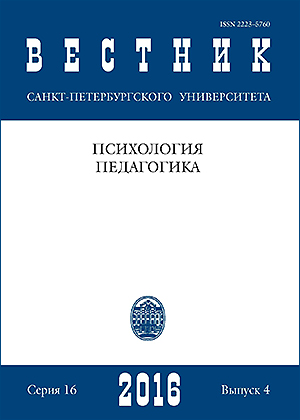Moral Disengagement: the Psychological Construct and its Measurement
DOI:
https://doi.org/10.21638/11701/spbu16.2016.402Abstract
Th e paper is the fi rst presentation of A. Bandura’s concept of moral disengagement and its eight mechanisms made in the Russian language. Various examples of empirical research of this construct conducted in diff erent countries for various purposes are described. Th ree empirical studies of the adaptation procedure for the original English version (authored by C. Moore) are provided in Russian translation: two studies describe the short scale (MD-8) adaptation procedures and the third one describes the longer scale (MD-24) adaptation procedure. It is shown that Cronbach’s alpha reliability index as well as the test-retest reliability coeffi cient are acceptable. Both scales for moral disengagement assessment (MD-8 and MD-24 in Russian) may be used for various purposes. Both scales’ questions/statements are provided.
Keywords:
moral disengagement, scale adaptation, moral agency, Albert Bandura
Downloads
References
References
Well-being and the Dark Triad]. Psikhologicheskie issledovaniia, 2015, vol. 8, no. 43. P. 5. Available at: http://psystudy.ru (accessed: 15.08.2016).
Justice in the Context of Collective Violence. Personality and Social Psychology Bulletin, 2010, vol. 36, no. 8, pp. 1115–1129.
Downloads
Published
How to Cite
Issue
Section
License
Articles of "Vestnik of Saint Petersburg University. Psychology" are open access distributed under the terms of the License Agreement with Saint Petersburg State University, which permits to the authors unrestricted distribution and self-archiving free of charge.




